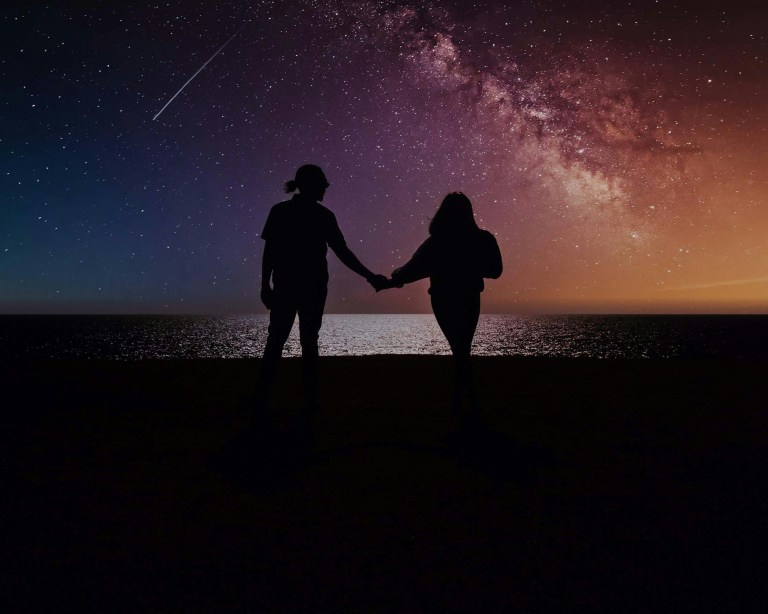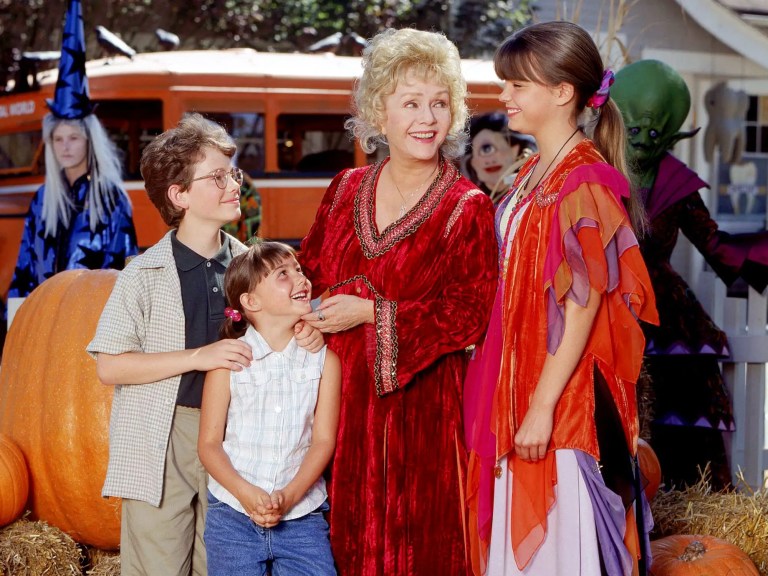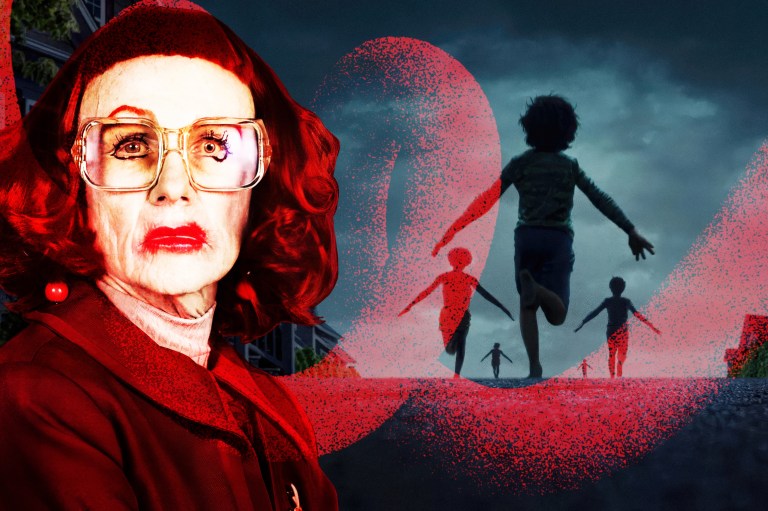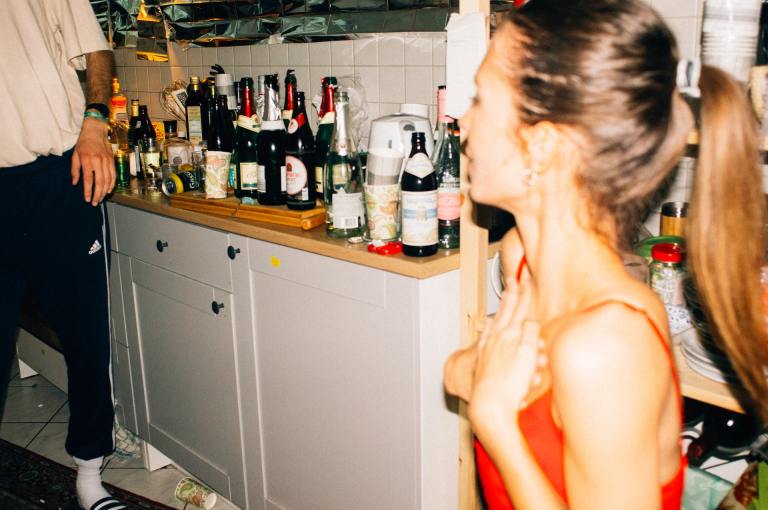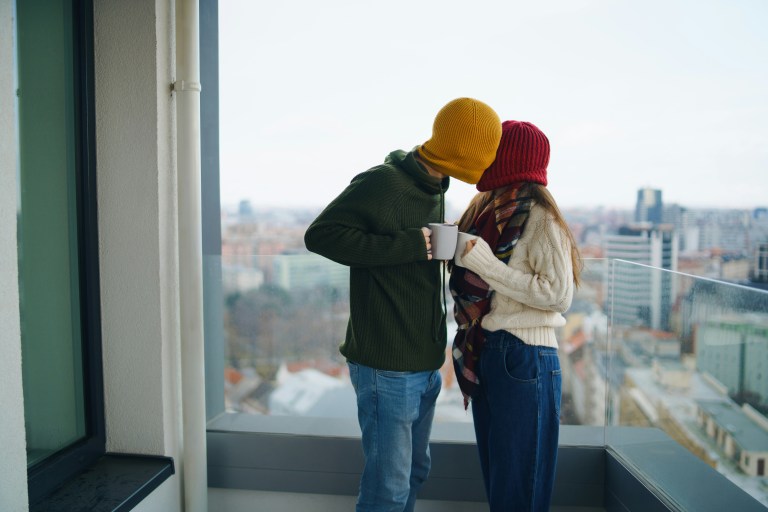
How Surviving An Eating Disorder Changed My Life
My dysfunction with food had nothing to do with how I looked and everything to do with a funny sounding word with a horribly crippling meaning: emetophobia.
By ![]() Ari Eastman
Ari Eastman
This post brought to you by the Pivot TV docu-series ‘Secret Lives of Americans’. Series Premiere – Friday, June 12th at 10:30pm EST/PST
SPONSORED

I didn’t want to call it an eating disorder for a really, really long time. Even now, the phrase feels so foreign because I had never quite fit into some textbook definition. It wasn’t easy to pinpoint what was going on. There wasn’t a PSA on my experience. No health teacher standing at the front of the classroom explaining why my abnormal relationship with food had me throwing out perfectly good chicken in the college cafeteria because I just couldn’t trust it. Nobody questioned why I abstained from eating at social gatherings, or why I always magically seemed to have eaten right before. There weren’t any essays on how avoiding food out of the fear that it would trigger illness was, in fact, an illness itself.
But when plates remained untouched and I often went to bed fatigued from lack of nutrition, I couldn’t really deny it any longer. I had an eating disorder. Something I’ve resisted labeling until right now. This might be the first time I’m saying (or typing) the words out loud. I recently heard about the Pivot TV docu-series Secret Lives Of Americans, which follows real people as they finally reveal secrets they’ve been keeping from everyone, and it hit me square in the stomach. This was something I needed to finally share. This was something I couldn’t hide any longer.
Before I admitted something was wrong, there was no one around to tell me that what I was doing was my own version of an eating disorder. Frankly, I wouldn’t have believed them anyways because it wasn’t related to body image, which is what society often portrays as the only cause of eating disorders. As if it’s that simple, a condition always consistent with body dysmorphia. I was a healthy size and one I felt comfortable with. Sure, I dipped into insecurities like any other twenty-year-old girl, but I was pretty secure with my physical appearance. My dysfunction with food had nothing to do with how I looked and everything to do with a funny sounding word with a horribly crippling meaning: emetophobia. Otherwise known as an intense, irrational fear or anxiety pertaining to vomiting.
This is a phobia I’ve had my entire life. It’s why I can’t take care of loved ones when they get the flu or why I run out of my apartment when a hungover roommate finds herself paying for a late night out. It’s the thing that makes me wonder if I’m cut out to have children. It’s the fear that runs my life in a way I’m ashamed to admit I can’t always control.
I have no idea what triggered it or why I have it. It seemed to get progressively worse over the years because I hadn’t ever really faced it. Even now, I’m knocking on wood because it’s been fifteen years since I’ve thrown up. So the phobia is now layered with the unknown. Not remembering how it feels, but still having a primal sense that it’s something I should avoid at all costs. No matter what.
Phobias do that. Convince you that what you fear will be the end of your world. So you avoid. Avoid by all means necessary.
That’s what my body would tell me. And a big source of fear? Food. The fear that putting food into my body would displease it and I’d throw it up. Or maybe it would trigger a food allergy. Maybe I’d get food poisoning because someone didn’t wash their hands, or I’d suddenly get hit with Ebola. The options were endless and I’d spin with my own neurosis.
So when I moved out for college, I decided I would control what I could. I didn’t have the comfort of my mother, a trusted figure, cooking for me. My disorder took full form as soon as I was on my own. Fear was my only familiarity so I trusted it more than cooks in the campus dining halls.
I refused to eat what I didn’t know. And that meant a lot of rice cakes in my dorm room. Maybe a banana. A salad if I was feeling like living on the edge. My diet became so small and unsubstantial — my mother would have been mortified to know how little I was taking care of myself.
I wouldn’t eat anything that I hadn’t tested before. And that meant doing so alone. I refused to eat anything new in front of people, so social gatherings at restaurants became a thing to dread. Shockingly enough, this doesn’t lead to a thriving social life. Or happiness at all, really.
But it all came to a head the night I passed out. Because my list of “safe foods” was so limited, my general caloric intake was severely lacking. Between cramming for finals and the non-food required social outings I participated in, my body had decided enough was enough. “You’re in over your head, Eastman,” I imagined my stomach gurgling in tummy aches and rumblings.
And then on the barely carpeted floor of my college common room, I fainted.
And no, it wasn’t romantic, no stud came rushing in to save dainty lil’ me. There was no flashing of my life with a cinematic soundtrack humming in the distance. I just fell to the floor. And came to moments later, dizzy. Embarrassed. Knowing something was wrong. Knowing I had to face reality.
And maybe that’s the biggest gift it gave me. I had no other option than to dissect what was happening. I couldn’t brush it aside any longer, pretending it was normal. Trying to convince the world I was healthy. I was eating. I was okay.
I wasn’t. It was interfering with everything. And it took falling down in front of my peers to understand this. But now, I’m grateful. Because it was the push I needed to see a counselor. It was the push I needed to address other mental health concerns. It was the push to finally look myself in a mirror and see who I was. The chance to see all of my failures, my shortcomings, the things I wanted so desperately to hide from, and to still say, “I love you.” I wasn’t going to hide from this. I was going to be honest. I was going to tell my story. And that’s what I’m doing in hopes that someone else out there knows it’s okay. It’s okay to not always understand what you’re doing or why you’re doing it. But when you find the strength to share with others, you’ll find it gets better.
This isn’t something I would wish upon anyone. Feeling out of your mind with no explanation doesn’t feel good. It would be the biggest lie if I claimed that acknowledging it has somehow made everything better. But it has made me better. Because I’ve learned to deal with it. I have learned to not run away from my problems, but instead to face them. And when they get too big? I am no longer afraid to ask for help. I have learned the most beautiful thing of all and that is that I’m not alone.
I survived an eating disorder and I’m not alone. And for that simple fact, I am glad to have come out on the other side. We are never truly alone. ![]()
